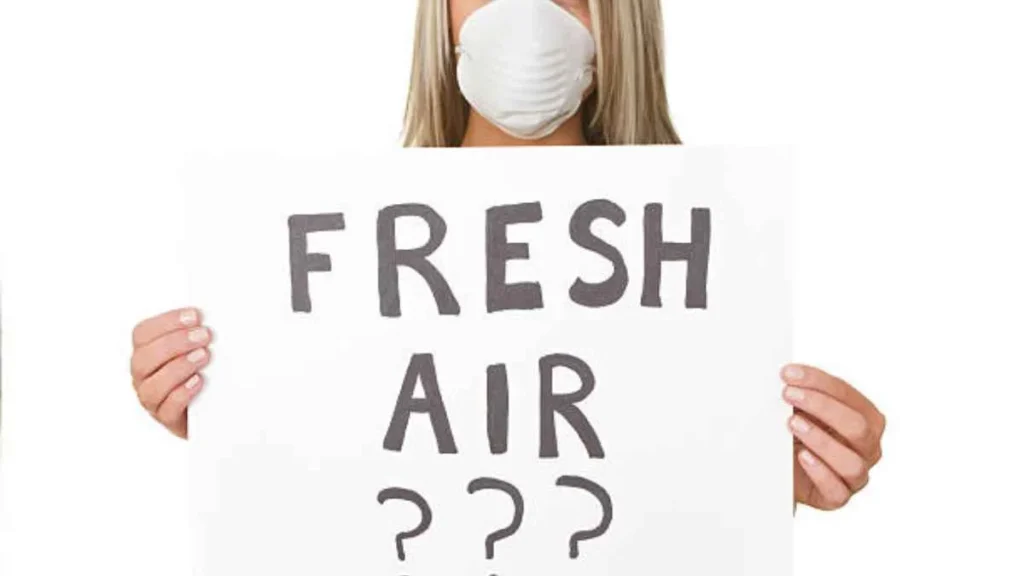HEALTH AND FITNESS
Bad Breath Blues: Understanding the Common Culprits

Bad breath, also known as halitosis, is a condition that affects millions of people worldwide. While it’s often something we’d prefer not to talk about, it can have a significant impact on one’s confidence and social interactions. Understanding what causes bad breath is the first step in addressing the issue and ensuring fresh, pleasant-smelling breath. In this post, we’ll explore the most common culprits behind bad breath and provide some tips for tackling the problem head-on.
Table of Contents
1. Poor Oral Hygiene
One of the most common causes of bad breath is poor oral hygiene. When you fail to brush and floss your teeth regularly, food particles and bacteria build up in your mouth. This can lead to plaque formation, a sticky film of bacteria that collects on your teeth and gums. The bacteria in plaque break down food particles, releasing sulfur compounds that cause a foul odor.
Additionally, neglecting to brush your tongue can contribute to bad breath. The tongue harbors bacteria, food particles, and dead cells, making it a prime location for unpleasant smells. Regular brushing of your teeth and tongue is crucial in maintaining oral health and fresh breath.
2. Dry Mouth (Xerostomia)
Saliva plays a key role in keeping your mouth clean by washing away food particles and neutralizing acids that can cause bad breath. When your mouth becomes dry, a condition known as xerostomia, it can lead to bad breath. This often happens when you’re dehydrated, sleep with your mouth open, or take medications that reduce saliva production.
Dry mouth can also be a result of medical conditions like Sjögren’s syndrome or diabetes, or it can occur after chemotherapy treatments. To combat dry mouth, it’s important to drink plenty of water throughout the day, chew sugar-free gum to stimulate saliva production, or use over-the-counter mouth moisturizers.
3. Food Choices
Certain foods are well-known for causing bad breath. Garlic, onions, and spicy foods, for example, contain strong-smelling compounds that are absorbed into the bloodstream and eventually exhaled through your lungs, leading to foul breath. While the smell from foods like these is temporary, it can linger for hours after eating.
Other foods, such as coffee and alcohol, can also contribute to bad breath. Coffee is acidic, which can lead to a dry mouth, while alcohol can dehydrate your body and mouth, both of which foster an environment for bad breath. If you’re looking to reduce bad breath, try to limit your consumption of these foods and drinks, or make sure to brush your teeth afterward.
4. Smoking and Tobacco Products
Smoking and using other tobacco products are notorious for causing bad breath. Not only do these products leave behind a smoky, unpleasant odor in the mouth, but they also dry out the mouth, making it harder for saliva to wash away food particles and bacteria. Over time, tobacco use can also lead to gum disease, which is another major contributor to chronic bad breath.
Quitting smoking or using tobacco products is one of the best ways to improve your breath and overall oral health. If quitting is difficult, consider talking to your doctor for support and resources to help you kick the habit.

5. Medical Conditions
Bad breath can also be a symptom of underlying medical conditions. Some common medical causes include:
- Gum disease: Also known as periodontal disease, gum disease is a common culprit of persistent bad breath. It occurs when bacteria in plaque irritate the gums, leading to infection and inflammation. As the infection progresses, it can cause bad breath, bleeding gums, and tooth mobility.
- Respiratory infections: Conditions like sinus infections, colds, and post-nasal drip can cause bad breath. Mucus and bacteria from the sinuses or throat can drip into the mouth, leading to a sour or unpleasant odor.
- Acid reflux (GERD): Gastroesophageal reflux disease occurs when stomach acid backs up into the esophagus. This acid can irritate the mouth and throat, causing a sour, acidic smell that can lead to bad breath.
- Diabetes: People with uncontrolled diabetes may develop a fruity or acetone-like smell in their breath. This is often a sign of diabetic ketoacidosis, a serious condition that requires medical attention.
If your bad breath persists despite good oral hygiene or is accompanied by other symptoms, it’s important to see a doctor or dentist to rule out any underlying medical conditions.
6. Poor-fitting Dental Appliances
If you wear dentures, retainers, or any other dental appliances, it’s essential to clean them properly. Food particles can become trapped in poorly cleaned appliances, and bacteria can accumulate, leading to bad breath. Similarly, if your appliances don’t fit well, they may cause irritation and sores in your mouth, contributing to odor.
Ensure that you clean your dental appliances regularly with the recommended cleaning solutions. If they feel uncomfortable or don’t fit properly, schedule a visit to your dentist for an adjustment.
7. Hormonal Changes
Hormonal fluctuations, particularly during pregnancy, menstruation, or menopause, can lead to bad breath. During pregnancy, for instance, changes in hormone levels can affect saliva production, while pregnancy-related nausea and vomiting can also contribute to foul breath.
Similarly, hormonal changes during menopause can reduce saliva flow, causing dry mouth and, in turn, bad breath. In such cases, maintaining a good oral hygiene routine and drinking plenty of water can help mitigate the issue.
In Conclusion
Bad breath is a widespread issue, but identifying its causes can empower you to take the necessary steps to manage or eliminate it. Maintaining fresh breath starts with good oral hygiene, staying hydrated, and being mindful of your diet. If bad breath continues despite these efforts, it’s a good idea to consult with a healthcare professional or visit a dentist’s office in San Jose, CA. They can help pinpoint any underlying issues and provide solutions to improve your breath. With the right care, you can banish bad breath and enjoy a fresh, confident smile.
-

 GENERAL6 months ago
GENERAL6 months agoChristofle – For Those Who Dream of Family Heirloom Silver
-

 SPORTS8 months ago
SPORTS8 months agoDiscover the World of Football with Streameast: Watch Your Favorite Leagues and Tournaments
-

 GENERAL12 hours ago
GENERAL12 hours agoUncovering the World of кинокрадко: The Dark Side of Film Piracy
-

 GENERAL3 months ago
GENERAL3 months agoATFBooru: Anime, Gaming, and Subculture Imageboard

























